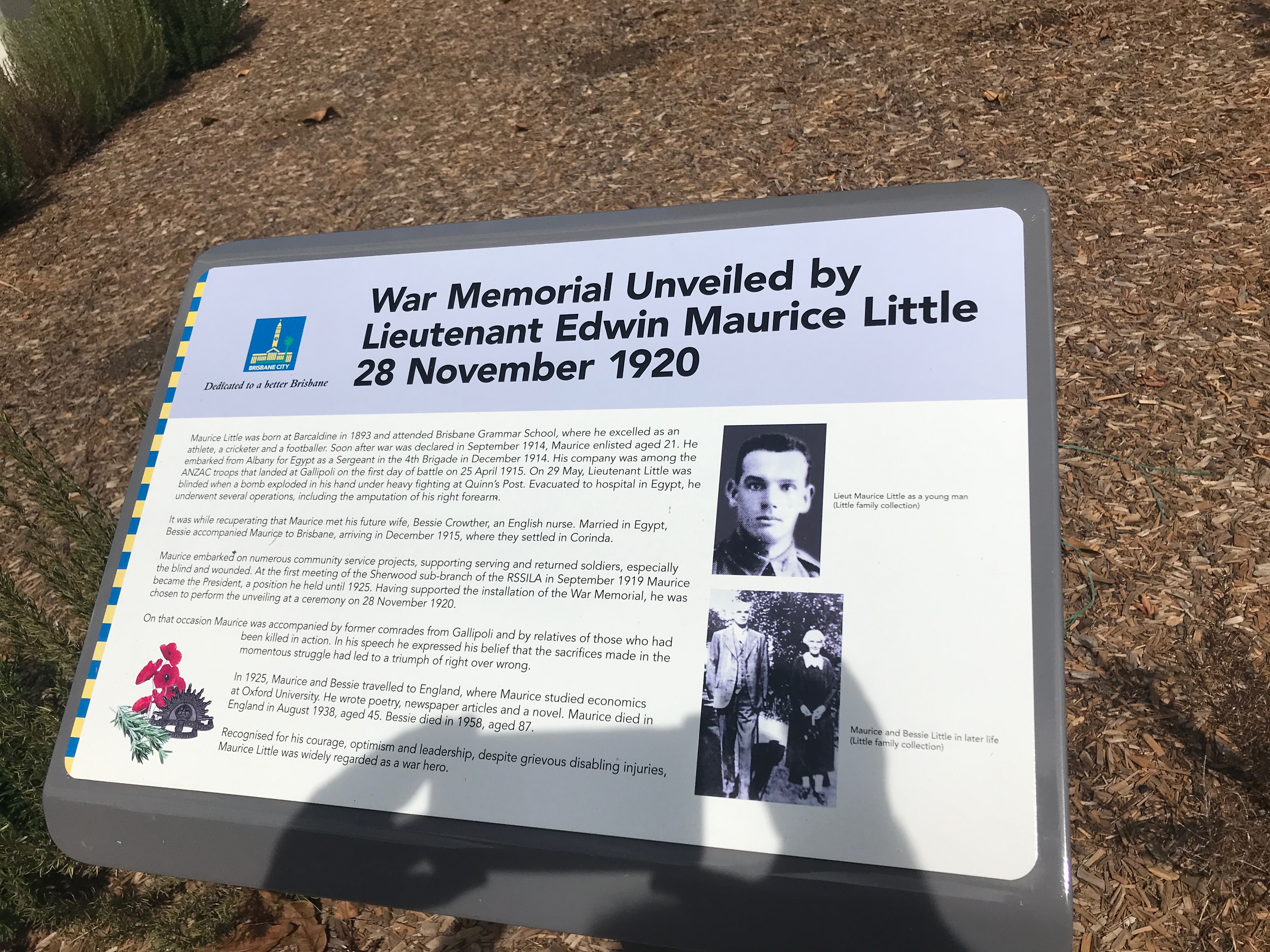Maurice Little was born in Barcaldine in 1893 and attended
Brisbane Grammar School where he excelled as an
athlete, a cricketer and a footballer. Soon after war was declared
in September 1914, Maurice enlisted aged 21. He
embarked from Albany for Egypt as a Sergant in the 4th Brigade in
December 1914. His company was among the
ANZAC troops that landed at Gallipoli on the first day of the
battle on 25 Apr 1915. On 29 May, Lieutenant Little was
blinded when a bomb exploded in his hand under heavy fighting at
Quinn's Post. Evacuated to hospital inEgypt, he
underwent several operations, including amputation of his right
forearm.
It was while recuperating the Maurice met his future wife, Bessie
Crowther, and English nurse. Married in Egypt
Bessie accompanied Maurice to Brisbane, arriving December 1915,
where they settled in Corinda.
Maurice embarked on numerous community service projects,
supporting serving and returned soldiers, especially
the blind and wounded. At the first m,eeting of the Sherwood
sub-branch of the RSSILA in september 1919, Maurice
became the president, a position he held until 1925. Having
supported the installation of the war memorial, he was
chosen to perform the unveiling at a ceremony on 28 November 1920.
On that occasion Maurice was accompanied by former comrades from
Gallipoli and by relatives of those who had
been killed in action. In his speech he expressed his belief that
the sacrifices made in the
momentous struggle had led to a triumph of right over wrong.
In 1925 Maurice and Bessie travelled to England where Maurice
studied economics at Oxford University. He wrote poetry, newspaper
articles and a novel. Maurice died in England in August 1938, aged
45. Bessie died in 1958 aged 87.
Recognised for his courage, optimism and leadership, despite
grievous disabling injuries,
Maurice Little was widely regarded as a war hero.
